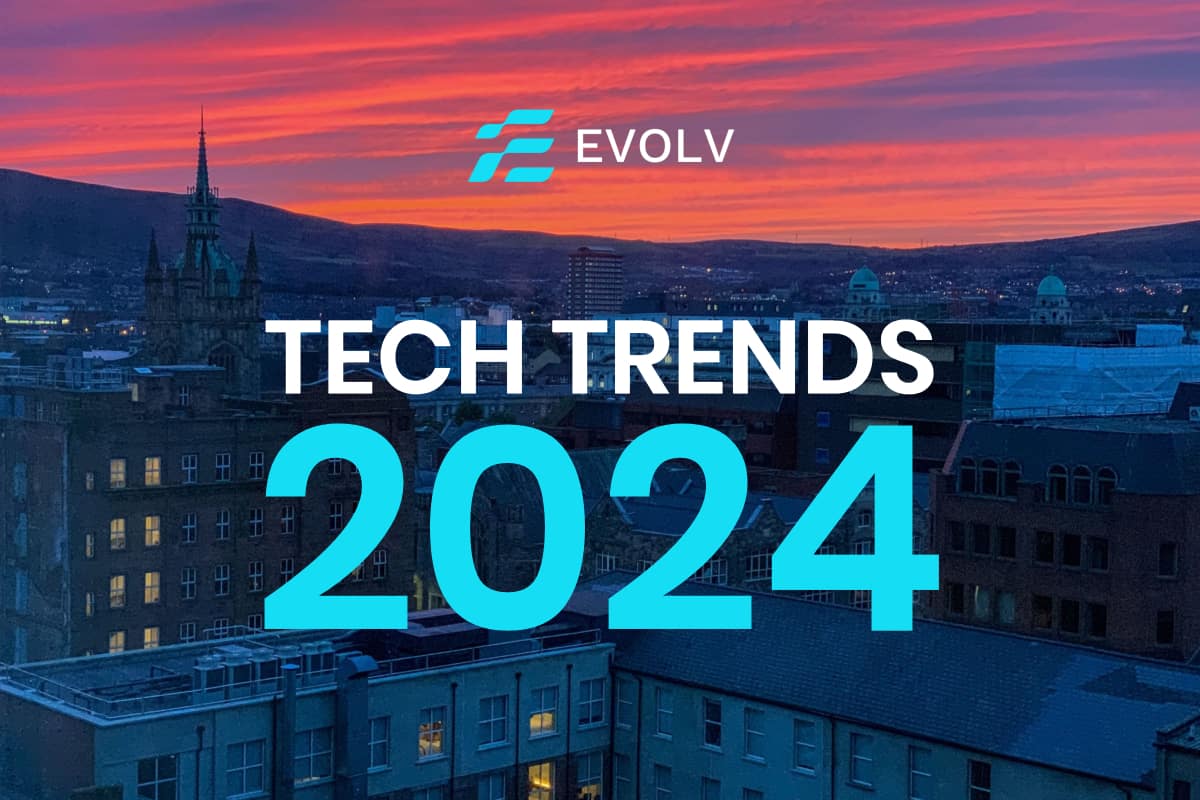Over the last couple of years we have witnessed a noticeable acceleration in Technology which is reshaping the way we work. From the sudden need to adapt to a hybrid work model, to the recent explosion in artificial intelligence and web3. What we are witnessing, is a series of technological revolutions that are transforming and reshaping the way we communicate, collaborate, create, and innovate.
Let’s delve into a few of the most influential tech trends that are reshaping the way we work in 2024 and beyond.
1. Artificial Intelligence
AI and Generative AI are more than just buzzwords; they’re already revolutionising the workplace. These technologies facilitate automation, empowering teams to tackle routine tasks with greater efficiency. This lets us better use this time for creative and strategic work.
For decades we have been told that AI is going to be ‘the next big thing’, but it is only since the introduction of ChatGPT that we started to fully appreciate how it can impact our lives. Since then, every application provider has been racing to integrate AI into their solution. Thanks to advances in computing power, data availability, and algorithm development this is impacting every industry.
Artificial intelligence now augments and automates various types of work. This includes everything from data analysis, customer services, image generation, content production, and much more.
But AI also poses significant challenges and risks. There are ethical dilemmas, social implications, and some careers at risk of being replaced or devalued. Thus, it’s essential to adopt responsible and human-centric approaches to AI. As well as ensure that workers have the skills and support to adapt to the changing nature of work.
In many ways, I don’t personally believe that AI will replace jobs, but rather augment and compliment those skillsets. Going forward I believe that it will be the businesses that adopt the technology and train their staff on how to use it that will benefit from a competitive advantage.
2. Remote Collaboration
Advanced collaboration tools have facilitated the rapid adoption of remote work. These include video conferencing over Teams or Zoom, cloud-based project management software and document sharing platforms such as SharePoint and Azure Files.
This technology empowers teams to collaborate seamlessly from all over the world. These tools are removing geographical barriers, allowing for efficient teamwork and real-time communication across the globe. In terms of recruitment, distributed teams can now access the best talent, regardless of location.
3. Hybrid Work
Hybrid work has become the term to describe an organisation which embraces a combination of both remote and in-office work. This is nothing new, but has become the default for many organisations in the wake of the Covid-19 pandemic.
Hybrid work offers many benefits, such as:
- Increased productivity
- A better work-life balance
- Reduced costs
- An increase in employee retention
- Increased employee satisfaction
The hybrid model has transformed the way many of us work. To be successful, organisations and staff need to adopt new skills, tools, and strategies. In particular, there needs to a high level of digital literacy, communication, collaboration, and self-management among staff.
4. Web3 – Decentralising the Internet
Web3 is a term being used to define the next generation of the internet. It is based on decentalised technologies. For example,
- Blockchain
- Cryptocurrencies
- Smart contracts
- Peer-to-peer networks
The idea behind Web3 is to create a more transparent, secure, and democratic internet where people have more control over their data, identity, and digital assets.
Web3 also allows for new and alternative forms of collaboration and value creation such as: Non-fungible tokens (NFTs) and Decentralized finance (DeFi)
Web3 has created new business models, platforms, and communities. These are designed to be more inclusive, participatory, and innovative.
Far from being just another internet fad, Yahoo Finance believes it has the potential to generate $49.10 billion in value by 2030
5. Internet of Things (IoT)
Smart and optimised workplaces are emerging thanks to IoT devices. These include intelligent thermostats that adapt office temperatures according to occupancy and wearable devices monitoring employees’ health and productivity. This connectivity not only boosts efficiency and cuts down on energy usage but also provides valuable data for making informed decisions.
6. Augmented Reality (AR) and Virtual Reality (VR)
Training, design, and customer interactions are undergoing a revolution thanks to AR and VR technologies. Within the workplace, these technologies provide immersive training, allowing employees to grasp complex tasks in a simulated environment. They are also applied in product design, enabling professionals to visualise and adjust prototypes in real time, thereby accelerating innovation cycles.
7. Cybersecurity
With the evolution of digital technologies, cybersecurity threats are also on the rise. To safeguard sensitive data and prioritise the privacy of employees and customers, businesses are channeling investments into advanced cybersecurity measures.
Some of the technologies that we have been implementing here at Evolv IT include biometric authentication and AI-driven threat detection. Cybersecurity advancements are crucial. They help our clients safeguard digital assets and maintain trust in the online workspace.
Workplace Evolution
These transformative technology trends aren’t passing fads; they’re shaping the future of work. Businesses that explore and adopt these technologies will gain a competitive advantage.
Remote collaboration technology such as Microsoft Teams, allows for flexibility and work-life balance, appealing to the modern workforce. AI and automation enhance business efficiency, reducing errors and operational costs. These are two areas that we see having the greatest impact in 2024.
Key Considerations
While the advantages of these technologies are substantial, they come with their own set of challenges. Ensuring employees can effectively utilise these tools necessitates thorough training. Moreover, ethical concerns arise regarding data privacy and security, along with the potential impact of automation on employment. Finding a balance between technological progress and human well-being is important, especially in this transformative era.
How Can We Help?
Navigating new technologies can seem daunting, and there are plenty of pitfalls that can waste time and money. Some technologies are on the bleeding edge and not quite ready for commercial use. Others technologies have matured rapidly over the past year, to the point where adopting now could put you ahead of the curve. At Evolv IT, we pride ourselves on our ‘Partner 1st’ approach. We don’t do sales, but we do like to help. Why not have a chat with one of our friendly experts to see how we can help you customise your transformation to fit your business goals.
Schedule a call with us to see how we can help.

